
Department for External Church Relations
The site uses cookies to help show you the most up-to-date information. By continuing to use the site, you consent to the use of your Metadata and cookies. Cookie policy
Metropolitan Hilarion attends national symposium of theologians and researchers on religion
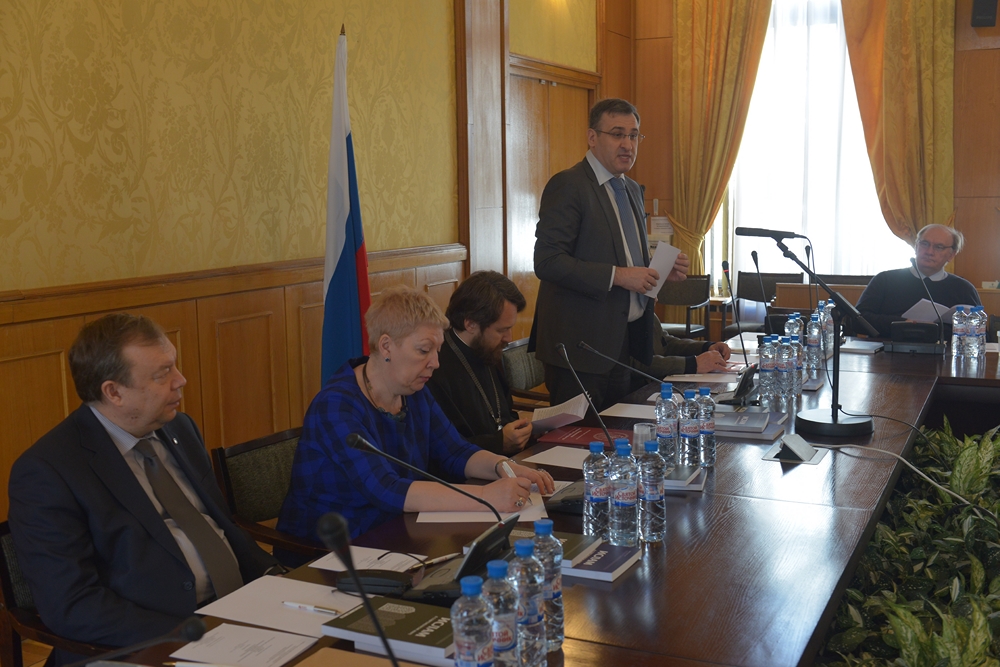
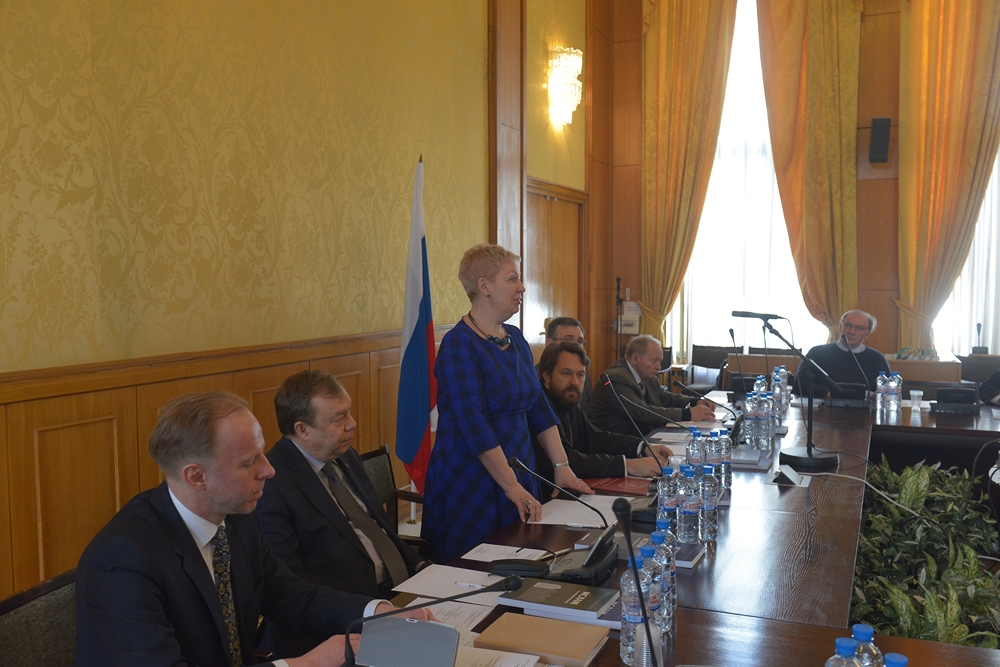
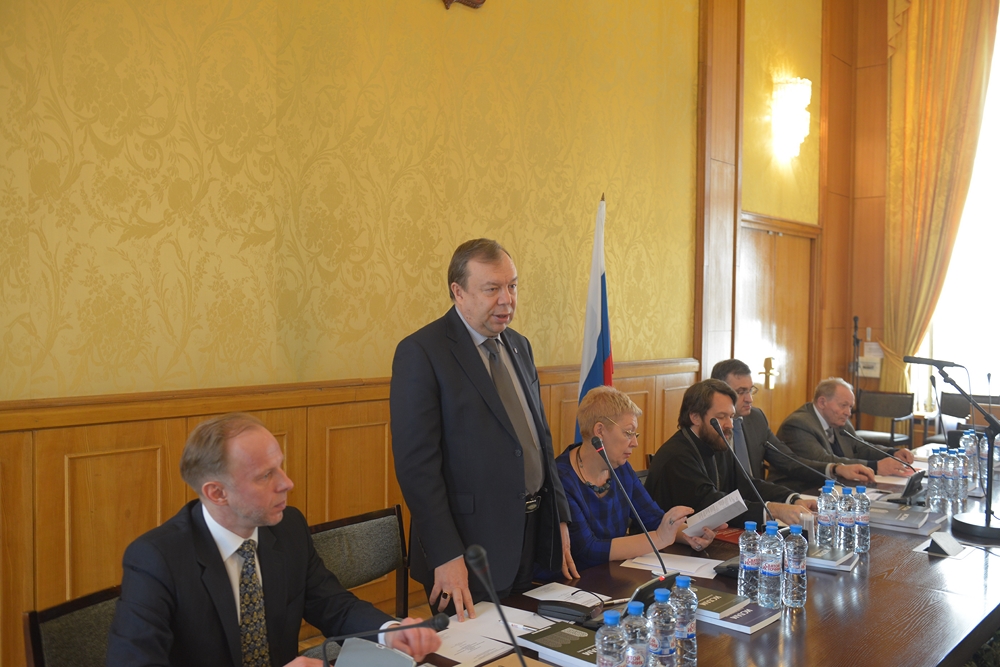
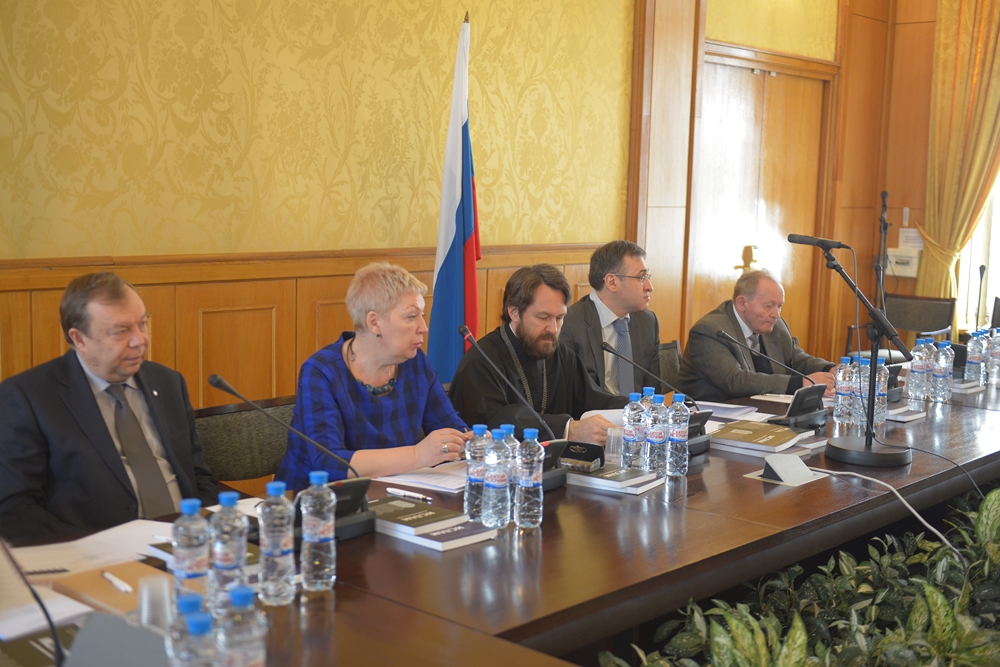


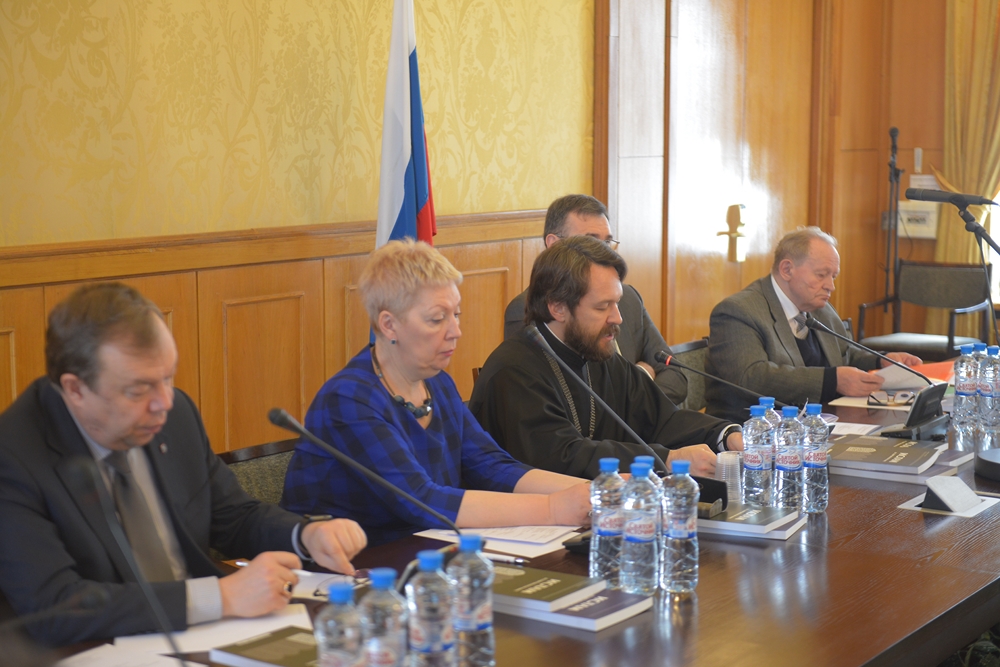

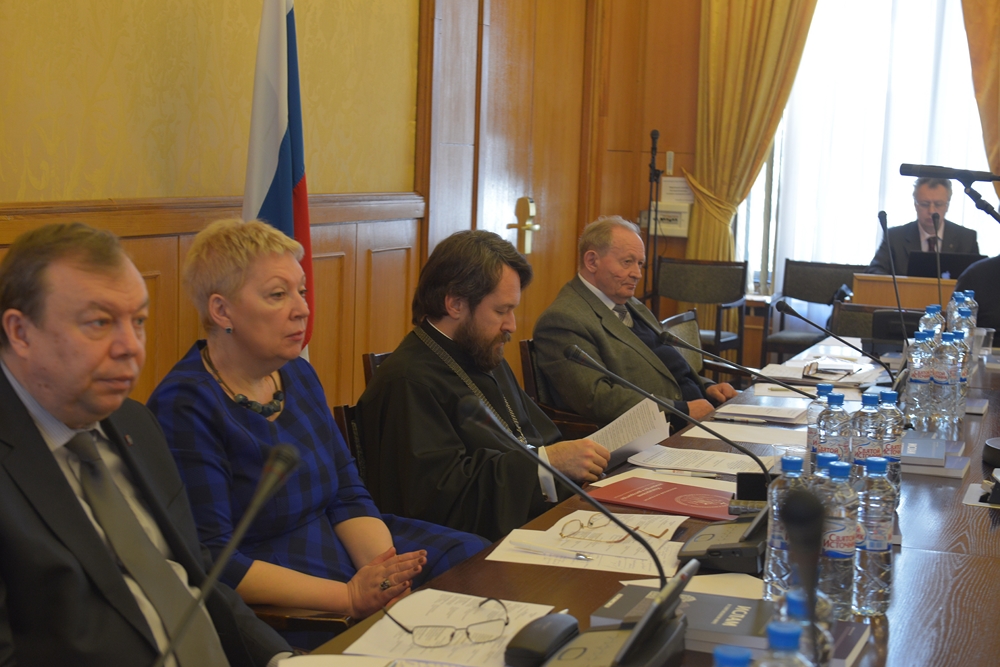


On April 22, 2016, a national symposium on Religion in Philosophical, Theological and Religious Research Approaches: Problems of Defining the Object and Expertise. It took place at the Russian Academy of National Economy and Public Administration under the President of the Russian Federation (RANEPA)
It was organized by the RANEPA Institute of Public Administration and Management’s chair of state-confessions relations and the RANEPA Institute of Social Sciences’ center ‘Religion and Society’ with the participation of the Association of Russian Religious Studies Center and the Interreligious Council of Russia.
The participants were greeted by I. Bartsits, director of PANAR’s Institute of Public Administration and Management, Ye. Yeremin, director of the Presidential Directorate for Internal Policy department for cooperation with religious organizations, and Ms. O. Vasilieva, head of the PANAR’s Institute for Public Administration and Management chair of state-confessions relations.
Metropolitan Hilarion of Volokolamsk, head of the Moscow Patriarchate department for external church relations and rector of the Ss Cyril and Methodius Institute of Post-Graduate Studies (CMI), presented a paper on Theology in Secular Educational Space.
Among the speakers were D. Shmonin, pro-rector for academic work, Russian Christian Academy of the Humanities and head of the CMI chair of pedagogics and theory of education, and Archpriest Dmitry Leskin, rector of the Volga St Alexis Orthodox Institute.
The symposium was chaired by Ms. O. Vasilieva and Prof. V. Schmidt, chair of ethnic and federative relations, PANAR Institute of Public Administration and Management. Among the participants was Hieromonk Ioann (Kopeikin), CMI pro-rector for training.
The participants discussed current academic approaches to the understanding of religious problems and prospects for the development of these approaches, as well as the existing forms of inter-departamental and inter-disciplinary academic cooperation.
Addressing the participants in the conclusion of the meeting, Metropolitan Hilarion said:
‘Dear colleagues,
I would like to respond to the disturbing notes voiced in various speeches. For instance, there were fears that religious studies will soon be swallowed up by theology (for financial reasons). There were references to ‘tragic consequences’ of introducing the passport of theology as a new academic discipline and ideas that theologians will begin using their right to participate in the debate to accuse religious researchers of amorality, etc.
I concluded my presentation, which opened today’s meeting, with an optimistic note, and even today’s discussion has not changed my mind that we have a common ground for discussion and interactions and that theologians, ecclesial and secular, and religious researchers can well find a common language. Moreover, there is enough work for all. I also hope that there will also be enough money for all.
I will cite a parallel from a world intimate to me by virtue of my initial education. There is music and the study of music. There are those who compose music and those who perform it, and there are music researchers and music critics who help us understand which composer or performer is good and which is bad. From my training in the conservatoire I remember the existence of a certain tension between, for instance, composers and music researchers. Composers believe that music researchers are a superfluous specialty because they only mar their life. However, it is important for people that there should be ‘outsiders’ for making critical evaluation of what is done in practice.
Theology presupposes a certain religious practice and, accordingly, ‘serves’ this religious practice through certain methodological premises and a certain methodological and scientific apparatus. Religious study presupposes abstraction from religious practice. It does not mean that a religious researcher must be an atheist. It is my conviction that there may also be believing religious researchers who combine their personal religious practice with approaches adopted in academic religious study.
For this reason, I believe it important that a demarcation line should be drawn between various related areas. I think no one of you is interested in violating these demarcation lines ‘to rob the other of his bread’. I would like to state my conviction that we all will have work to do and that we will have a ground for cooperation’.
The meeting was summed up by Prof. Schmidt.
DECR Communication Service
Patriarch
Sermons
05.01.2026
24.12.2025
24.01.2021
06.11.2020